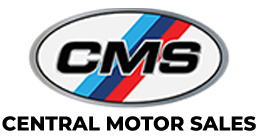32 Franklin Street Wrentham, MA 02093
Essential Car Maintenance Tips Every Driver Should Know.
Car maintenance tips are crucial for ensuring your vehicle runs smoothly and safely on the road. Whether you're a new driver or have been behind the wheel for years, understanding how to properly care for your car can save you time, money, and headaches in the long run.
In this comprehensive guide, we'll explore 10 essential car maintenance tips that every driver should know. From basic tasks like checking tire pressure to more complex procedures like changing oil and inspecting brakes, we'll cover everything you need to know to keep your car in top condition.
By following these car maintenance tips, you can not only prolong the life of your vehicle but also ensure your safety and the safety of others on the road. So let's dive in and learn how to become a savvy car owner who knows how to take care of their vehicle properly.
Regular Oil Changes
Regular oil changes are vital for maintaining the health and longevity of your vehicle's engine. Engine oil lubricates moving parts, reduces friction, and helps to dissipate heat, ensuring smooth and efficient operation.
It's essential to follow the manufacturer's recommendations for oil change intervals, typically every 5,000 to 7,500 miles or every six months, whichever comes first. Additionally, it's a good idea to check your engine oil levels regularly and top up if necessary to prevent damage to your engine.
To check your engine oil levels, simply locate the dipstick, pull it out, and wipe it clean. Then reinsert the dipstick fully and remove it again to check the oil level. If the oil level is low, add the appropriate type of oil until it reaches the full mark on the dipstick.
Tire Maintenance
Proper tire maintenance is essential for both safety and fuel efficiency. Well-maintained tires with adequate tread depth and proper inflation levels provide better traction, handling, and braking performance, especially in adverse weather conditions.
Regularly checking your tire pressure is crucial to ensure your tires are inflated to the correct PSI (pounds per square inch). You can find the recommended tire pressure for your vehicle in the owner's manual or on a sticker located on the driver's side door jamb. Use a tire pressure gauge to measure the pressure and inflate or deflate the tires as needed.
Additionally, it's essential to inspect your tires regularly for signs of wear, such as uneven tread wear, cracks, bulges, or punctures. If you notice any abnormalities, it's best to have your tires inspected by a professional mechanic and replaced if necessary.
By maintaining proper tire pressure and inspecting your tires regularly, you can ensure optimal performance, safety, and longevity of your tires, ultimately saving you money on fuel and replacement costs.
Brake System Inspection
The brake system is one of the most critical safety components of your vehicle, making regular inspections essential. Signs of brake wear, such as squealing noises, pulsating brakes, or a spongy brake pedal, indicate potential issues that should be addressed promptly.
It's crucial to inspect your brake pads regularly and replace them when they become worn down to prevent damage to other brake components and ensure reliable braking performance. Additionally, checking the brake fluid level and quality is important, as low or contaminated brake fluid can compromise braking effectiveness.
Regular brake inspections by a qualified mechanic are recommended to detect any potential issues early on and prevent brake failure. Neglecting brake maintenance can lead to costly repairs and compromise your safety on the road.
Fluid Checks and Top-Ups
Maintaining proper fluid levels in your vehicle is crucial for optimal performance and longevity. Several essential fluids, such as engine oil, coolant, transmission fluid, and windshield washer fluid, play vital roles in ensuring your vehicle operates smoothly and safely.
Regularly checking these fluids and topping them up as needed can help prevent mechanical issues and costly repairs down the line. For example, low engine oil levels can lead to engine damage, while inadequate coolant levels can cause overheating and potential engine failure.
To check your vehicle's fluid levels, refer to the owner's manual for instructions on locating and inspecting each fluid reservoir. Use a dipstick or sight glass to check engine oil, and ensure coolant and transmission fluid levels are within the recommended range.
Battery Maintenance
The battery is essential for starting your vehicle and powering its electrical systems. Regular battery maintenance is crucial to ensure reliable starting and prevent unexpected breakdowns.
Firstly, it's important to check the battery terminals regularly for signs of corrosion, which can hinder electrical conductivity. If corrosion is present, clean the terminals with a wire brush and a mixture of baking soda and water to prevent electrical issues.
Additionally, monitoring the battery's voltage level and ensuring it remains within the recommended range can help prevent unexpected failures. Use a multimeter to check the battery's voltage periodically, especially during extreme weather conditions that can affect battery performance.
If your battery is older or showing signs of weakness, such as slow cranking or dimming lights, it may be time for a replacement. Consult your owner's manual or a qualified mechanic for guidance on selecting the right battery for your vehicle.
Air Filter Replacement
The air filter plays a crucial role in ensuring the engine receives clean air for combustion. Over time, the air filter can become clogged with dirt, dust, and debris, restricting airflow and reducing engine performance.
Regularly inspecting and replacing the air filter is essential for maintaining optimal engine efficiency and fuel economy. A dirty air filter can cause the engine to work harder, leading to decreased performance and increased fuel consumption.
To inspect the air filter, locate the air filter housing, typically located under the hood near the engine. Remove the air filter and inspect it for signs of dirt or debris accumulation. If the filter appears dirty or clogged, replace it with a new one according to the manufacturer's recommendations.
By replacing the air filter regularly, you can ensure your engine receives
clean air for combustion, resulting in improved performance, fuel efficiency, and overall longevity of your vehicle.
Light Inspection and Replacement
Properly functioning lights are essential for visibility and safety on the road. Regularly inspecting and replacing faulty bulbs ensures that your vehicle remains visible to other drivers and allows you to see clearly in various driving conditions.
Start by inspecting all exterior lights, including headlights, taillights, brake lights, turn signals, and hazard lights. Check for any burned-out bulbs, cracks, or damage to the light housings. Replace any bulbs that are not working or showing signs of wear.
Additionally, it's essential to inspect and clean the lenses of your lights regularly to maintain maximum brightness and visibility. Dirty or foggy lenses can reduce light output and compromise your ability to see and be seen on the road.
Scheduled Maintenance
Scheduled maintenance is crucial for keeping your vehicle running smoothly and preventing costly repairs down the line. Manufacturers provide recommended maintenance schedules that outline specific services and intervals for performing them.
These schedules typically include tasks such as oil changes, filter replacements, fluid checks, belt and hose inspections, and tire rotations. Adhering to these maintenance schedules helps ensure that your vehicle's components are properly lubricated, cleaned, and inspected, reducing the risk of mechanical failures and extending the lifespan of your vehicle.
It's essential to keep track of scheduled maintenance tasks and perform them on time to maintain your vehicle's warranty coverage and resale value. You can use a maintenance log or consult your owner's manual for guidance on when to perform specific services.
Conclusion
Adhering to these 10 essential car maintenance tips can help ensure that your vehicle remains safe, reliable, and efficient on the road. By regularly performing tasks such as oil changes, tire maintenance, brake inspections, and fluid checks, you can prevent costly repairs, extend the lifespan of your vehicle, and enjoy a smoother driving experience.
At
Central Motor Sales, we understand the importance of proper car maintenance in keeping your vehicle running smoothly. Our team of experienced technicians is dedicated to providing top-quality maintenance and repair services to help you keep your vehicle in optimal condition.
Contact us today at
508-384-3737
to schedule a maintenance appointment and ensure that your vehicle receives the care it deserves. Let Central Motor Sales be your trusted partner in maintaining your vehicle's performance and reliability for years to come.


